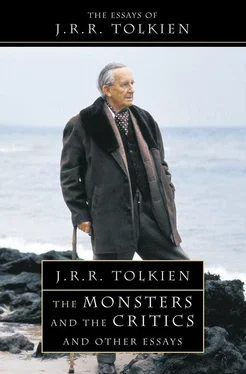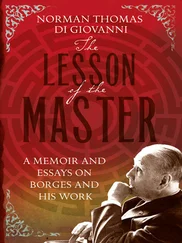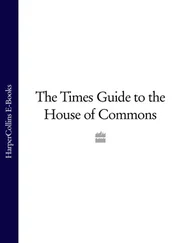24The Genesis which is preserved for us is a late copy of a damaged original, but is still certainly in its older parts a poem whose composition must be referred to the early period. That Genesis A is actually older than Beowulf is generally recognized as the most probable reading of such evidence as there is.
25Actually the poet may have known, what we can guess, that such creation-themes were also ancient in the North. Voluspá describes Chaos and the making of the sun and moon, and very similar language occurs in the Old High German fragment known as the Wessobrunner Gebet. The song of the minstrel lopas, who had his knowledge from Atlas, at the end of the first book of the Aeneid is also in part a song of origins: hic canit errantem lunam solisque labores, unde hominum genus et pecudes, unde imber et ignes. In any case the Anglo-Saxon poet’s view throughout was plainly that true, or truer, knowledge was possessed in ancient days (when men were not deceived by the Devil); at least they knew of the one God and Creator, though not of heaven, for that was lost. (See here)
26It is of Old Testament lapses rather than of any events in England (of which he is not speaking) that the poet is thinking in lines 175 ff., and this colours his manner of allusion to knowledge which he may have derived from native traditions concerning the Danes and the special heathen religious significance of the site of Heorot ( Hleiðrar, œt hœrgtrafum , the tabernacles) – it was possibly a matter that embittered the feud of Danes and Heathobeards. If so, this is another point where old and new have blended. On the special importance and difficulty for criticism of the passage 175–88 see the Appendix.
27Though only explicitly referred to here and in disagreement, this edition is, of course, of great authority, and all who have used it have learned much from it.
28I am not concerned with minor discrepancies at any point in the poem. They are no proof of composite authorship, nor even of incompetent authorship. It is very difficult, even in a newly invented tale of any length, to avoid such defects; more so still in rehandling old and oft-told tales. The points that are seized in the study, with a copy that can be indexed and turned to and fro (even if never read straight through as it was meant to be), are usually such as may easily escape an author and still more easily his natural audience. Virgil certainly does not escape such faults, even within the limits of a single book. Modern printed tales, that have presumably had the advantage of proof-correction, can even be observed to hesitate in the heroine’s Christian name.
29The least satisfactory arrangement possible is thus to read only lines 1–1887 and not the remainder. This procedure has none the less been, from time to time, directed or encouraged by more than one ‘English syllabus’.
30Equivalent, but not necessarily equal, certainly not as such things may be measured by machines.
31That the particular bearer of enmity, the Dragon, also dies is important chiefly to Beowulf himself. He was a great man. Not many even in dying can achieve the death of a single worm, or the temporary salvation of their kindred. Within the limits of human life Beowulf neither lived nor died in vain – brave men might say. But there is no hint, indeed there are many to the contrary, that it was a war to end war, or a dragon-fight to end dragons. It is the end of Beowulf, and of the hope of his people.
32We do, however, learn incidentally much of this period: it is not strictly true, even of our poem as it is, to say that after the deeds in Heorot Beowulf ‘has nothing else to do’. Great heroes, like great saints, should show themselves capable of dealing also with the ordinary things of life, even though they may do so with a strength more than ordinary. We may wish to be assured of this (and the poet has assured us), without demanding that he should put such things in the centre, when they are not the centre of his thought.
33Free as far as we know from definite physical location. Details of the original northern conception, equated and blended with the Scriptural, are possibly sometimes to be seen colouring the references to Christian hell. A celebrated example is the reference in Judith to the death of Holofernes, which recalls remarkably certain features in Vðluspá . Cf. Judith 115: wyrmum bewunden, and 119: 01 ðam wyrmsele with Vōl. 36 sá’s undinn salr orma hryggjum: which translated into O.E. would be se is wunden sele wyrma hrycgum.
34Such as 168–9, probably a clumsily intruded couplet, of which the only certain thing that can be said is that it interrupts (even if its sense were plain) the natural connexion between 165–7 and 170; the question of the expansion (in this case at any rate skilful and not inapt) of Hrothgar’s giedd, 1724–60; and most notably lines 175–88.
35Of course the use of words more or less equivalent to ‘fate’ continued throughout the ages. The most Christian poets refer to wyrd, usually of unfortunate events; but sometimes of good, as in Elene 1047, where the conversion of Judas is ascribed to wyrd. There remains always the main mass of the workings of Providence (Metod) which are inscrutable, and for practical purposes dealt with as ‘fate’ or ‘luck’. Metod is in Old English the word that is most nearly allied to ‘fate’, although employed as a synonym of god. That it could be so employed is due probably to its having anciently in English an agental significance (as well as an abstract sense), as in Old Norse where mjōtuðr has the senses ‘dispenser, ruler’ and ‘doom, fate, death’. But in Old English metodsceaft means ‘doom’ or ‘death’. Cf. 2814 f. where wyrd is more active than metodsceaft. In Old Saxon metod is similarly used, leaning also to the side of the inscrutable (and even hostile) aspects of the world’s working. Gabriel in the Hêliand says of John the Baptist that he will not touch wine: so habed im uurdgiscapu, metod gimarcod endi maht godes (128); it is said of Anna when her husband died: that sie thiu mikila maht metodes todelda, uured uurdigiscapu (511). In Old Saxon metod(o)giscapu and metodigisceft , equal Fate, as O.E. metodsceaft .
36Compare, for instance, the intrusive commentary in Fóstbrœðra saga which observes in a description of a grim pagan character: ekki var hjarta hans sem fóarn í fugli, ekki var þat blóðfult, svá at þat skylfi af hræðslu, heldr var þat hert af enum hæsta hōfuðsmið í ōllum hvatleik (ch. 2); and again Almáttigr er sá sem svá snart hjarta ok óhrætt lét í brjóst Porgeiri; ok ekki var hans hugpryði af mōnnum ger né honum í brjóst borin, heldr af enum hæsta hōfuðsmið (ib.). Here the notion is explicitly (if unseasonably and absurdly) expressed.
37It is not strictly true to say, as is said, for instance, by Hoops, that he is ‘identified’ with their heathen god. The Christian theory was that such gods did not exist, and were inventions of the Devil, and that the power of idols was due to the fact that he, or one of his emissaries, often actually inhabited them, and could be seen in their real hideousness if the veil of illusion was removed. Compare Aelfric’s homilies on St Bartholomew, and St Matthew, where by the power of an angel or saint the devil residing in idols was revealed as a black silhearwa .
38Similarly it is the very marked character already by the poet given to Hrothgar which has induced and made possible without serious damage the probable revision and expansion of his sermon. Well done as the passage in itself is, the poem would be better with the excision of approximately lines 1740–60; and these lines are on quite independent grounds under the strongest suspicion of being due to later revision and addition. The actual joints have, nevertheless, if that is so, been made with a technical competence as good as that which I here assume for the earlier passage.
Читать дальше












